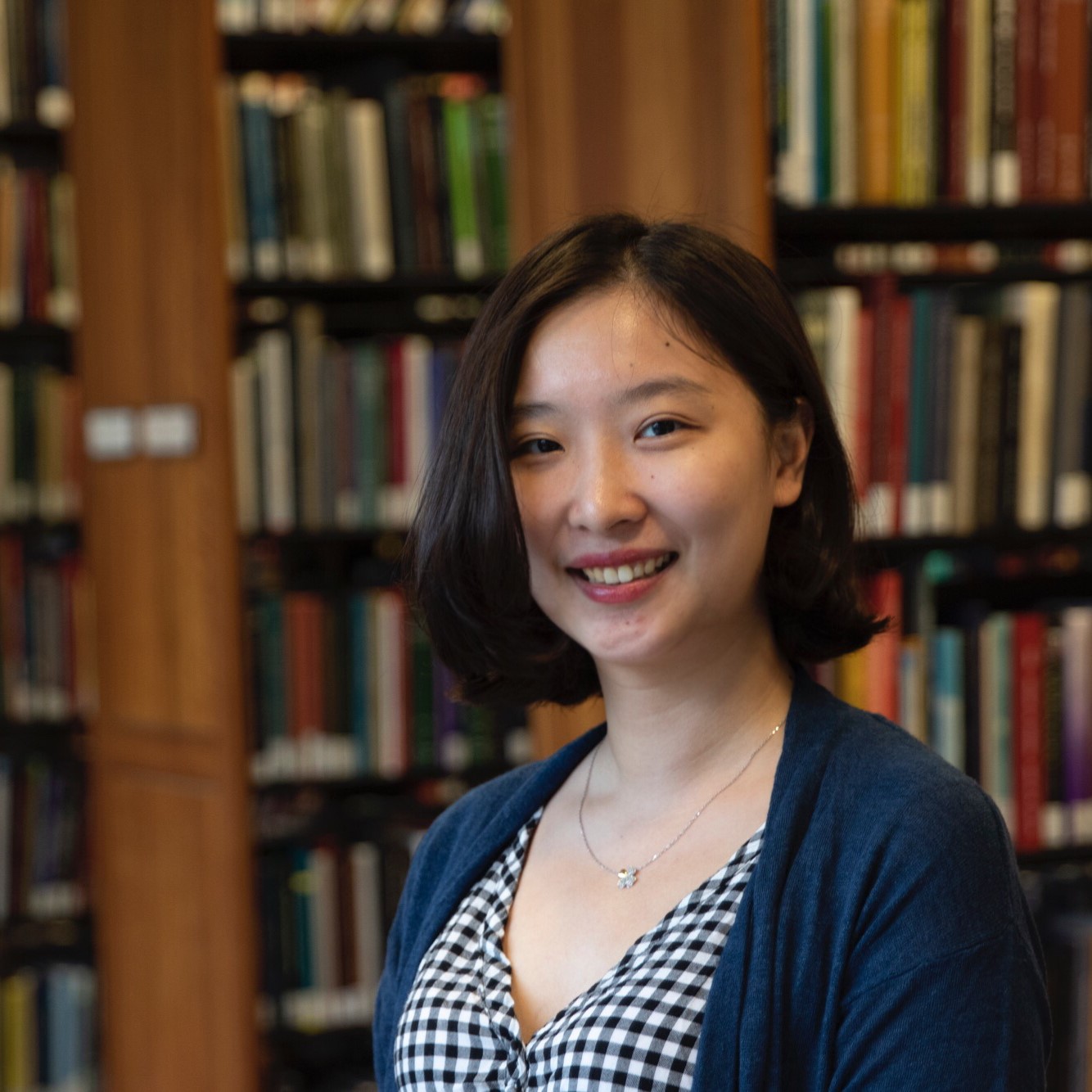Voices from the Sylff Community
Aug 22, 2024
End-of-Life Care Decisions for People with Dementia in China: Patients Rarely Have a Say
Given that Asian medical decision-making experiences tend to be overlooked in academia and policy design, gerontologist Yifan Lou (Columbia University, 2019, 2022) conducted an SRG-supported study to provide empirical evidence for end-of-life decision-making narratives in China. She hopes to contribute to effective interventions and services for older Chinese with dementia and their family caregivers, as well as to discussions on culturally specific definitions of a “good death.”
* * *
With generous support from SRG, I was able to finish the data collection, transcribing, and preliminary analyses of the project entitled “End-of-Life Decision-Making Experiences among the Primary Caregivers for Older Adults with Dementia in China.” This study aims to understand the values and unique challenges around end-of-life care among Chinese dementia caregivers, the results of which can inform the future design of a culturally sensitive intervention on advance care planning (ACP) for people living with dementia and their family caregivers in China.
China is the country with the largest population of older adults and people living with dementia in the world. The country’s population of people living with dementia is projected to reach an estimated of 75.6 million by 2030 (Xu et al. 2017). Unlike other critical illnesses like cancer, dementia always requires primary caregivers to make many end-of-life care decisions, including but not limited to admission to nursing homes, tube feeding, and do-not-resuscitate orders, on behalf of the people living with dementia themselves. Those decisions are extremely hard for caregivers, especially if they are experiencing physical exhaustion from long-time caregiving, emotional distress, and “anticipatory grief” due to the nature of dementia (Jones et al. 2019). Advance care planning can help to relieve the burden of caregivers and also make sure that those with dementia will receive the treatments that align with their preferences. Studies suggest that people at an early stage of dementia are still capable of making ACP choices (Yaffe et al. 2002; Hirschman et al. 2008).
ACP is still an emerging concept in China, however, where death and dying are cultural taboos. There are no studies elucidating the experience of dementia caregivers around end-of-life care decisions, and little is known regarding how their emotional burdens can be relieved to make sure people living with dementia can meet a dignified death. ACP in China cannot be promoted without knowing the Chinese people’s perceptions of and their current experiences with this issue. My study thus seeks to provide empirical evidence for decision-making narratives in China, which can significantly contribute to future developments in interventions and services for older Chinese with dementia and their family caregivers.
Having No Say in Care Decisions
In the project, I was able to interview 20 dementia caregivers and 5 health-care professionals in collaboration with community-based health-care centers. I conducted semi-structured interviews with the 25 participants on their experiences and perceptions of medical decision-making for people living with dementia. I also administered background questionnaires on their socioeconomic and health information. The participants had diverse backgrounds in terms of socioeconomic status, rural/urban residence, relationship to people living with dementia, and their own health status.

©fzant/Getty Images
Because the majority of participants used the Shanghai dialect in the interview, I outsourced the transcribing to a research assistant who can understand the dialect and have basic knowledge of social science research. The research assistant and I further worked on data analysis, the results of which were finalized and will be presented at the annual scientific meeting of the Gerontological Society of America in November 2024. To disseminate the results and make real impact, I also plan to present the results to community-based social service agencies and work with social workers in the agencies to design culturally appropriate interventions and evidence-based practices.
Our preliminary results show that people with dementia in China never have a say in their medical-care decisions. More specifically, as was seen in with my previous research in health communication during end-of-life care, we consistently observed three different types of power dynamics in the triad relationship among primary caregivers, medical professionals, and other family members: shared power between primary caregivers and doctors, balanced power between primary caregivers and other family members, and unbalanced power among the three stakeholders. Guided by Dahl’s relational power model (Dahl 1957), we further discussed the outcomes of the three different types of power dynamics. None of the three, though, involved the person who is actually experiencing death and dying. Primary caregivers, health-care professionals, and other family members frequently cited as reasons for such exclusion concerns about filial piety, the uncertain validity of the people living with dementia’s expressed wishes given their cognitive status, and concern for family harmony.
The nuanced data has the potential to spawn more research questions related to death, dying, and medical decision-making involving people living with dementia. More particularly, we will further explore the unique challenges of caregivers and health-care professionals when they try to make big life decisions for the patients without being able to confirm their wishes and preferences. We will also investigate how culture plays a part in medical decision-making so as to inform the development of culturally appropriate interventions and service delivery.
It is also possible to use this data to understand how family members communicate needs and information with health-care professionals. Health communication is an important topic in China because of frequent conflicts between the patient, family, and provider in hospitals. By understanding the concerns of family members and providers simultaneously using the data, we will be able to detangle the potential reasons behind the miscommunication in medical decision-making.
Framework for Intervention
My study is among the first to understand the experiences of advance care planning in the Chinese community. The study provides practitioners a framework for understanding and intervening in medical decision-making and ACP for surrogates of people with dementia. The results highlight the distinct decision-making experiences of people living with dementia in China compared to those in the West and suggest that policymakers should consider the voices of the local people and families. The study may also shed light on the medical decision-making process in other Asian countries with similar cultures, such as Korea and Singapore.
The Asian medical decision-making experience is largely overlooked in academia and policy design, particularly given that end-of-life care, hospice care, and ACP are all Western concepts. I thus hope to contribute to the growing conversation on adopting ACP and related concepts in Chinese and other Asian societies and to the larger discussion on culturally specific definitions of a “good death.” Future studies can provide a comparative lens to more comprehensively understand how health-care decision-making in end-of-life care settings works in Asian and Western countries.
References
Dahl, R. A. (1957). The Concept of Power. Behavioral Science, 2(3), 201–215.
Hirschman, K. B., Kapo, J. M., & Karlawish, J. H. (2008). Identifying the Factors that Facilitate or Hinder Advance Planning by Persons with Dementia. Alzheimer Disease and Associated Disorders, 22(3), 293–298.
Jones, K., Birchley, G., Huxtable, R., Clare, L., Walter, T., & Dixon, J. (2019). End of Life Care: A Scoping Review of Experiences of Advance Care Planning for People with Dementia. Dementia, 18(3), 825–845.
Xu, J., Wang, J., Wimo, A., Fratiglioni, L., & Qiu, C. (2017). The Economic Burden of Dementia in China, 1990–2030: Implications for Health Policy. Bulletin of the World Health Organization, 95(1), 18.
Yaffe, K., Fox, P., Newcomer, R., Sands, L., Lindquist, K., Dane, K., & Covinsky, K. E. (2002). Patient and Caregiver Characteristics and Nursing Home Placement in Patients with Dementia. JAMA, 287(16), 2090–2097.
